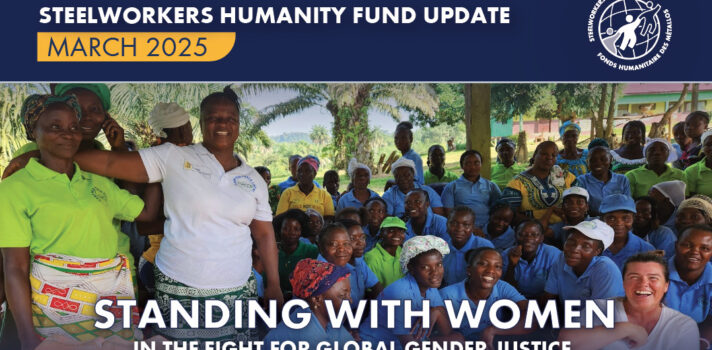
ADVISORY: Putting workers first in the election – United Steelworkers and NDP Leader Jagmeet Singh
The USW is a founding member of the NDP in 1961. Since the last election, the NDP has leveraged its power in Parliament for workers.
“Life-changing.” “Heartbreaking.” “Courageous.” These are some of the takeaways for USW members who visited Dhaka in Bangladesh last July, with the Steelworkers Humanity Fund.
The trip was part of the fund’s ongoing partnership with the Bangladesh Centre for Workers’ Solidarity (BCWS), to support the centre’s efforts to win union rights, health and safety, end harassment and abuse and gain a living wage for the garment workers in Bangladesh.
“There are more than 3,500 garment factories in Bangladesh and a majority of the workers are women,” said Michelle Ravary, a member of USW Local 1944.
The delegation spent a day with 20 women union leaders and heard about their struggles to form unions. When managers discover union activity, they send thugs to intimidate the workers and their families. Many have suffered beatings, torture and kidnapping. Reporting to police is futile, as authorities have been bribed to stay out of it or perpetrate similar horrors.
Despite these struggles, the workers are committed to trying to win their union to make the workplace better for future generations.
Visiting the workers’ homes and seeing their living conditions was heartbreaking.
“All these families can afford is a small room often made out of corrugated metal. They have no fridge, so most families survive on rice,” said Alex Lourenco, a member of USW Local 2894.
Workers make about 8,000 Taka a month, equivalent to USD$80.
“Women tell us they don’t eat or drink during their shift because they don’t want to lose time. They work six days a week and often the equivalent of two consecutive, eight-hour shifts,” said Caroline LeMay, USW Local 9700 Vice-President and Unit Chair.
Following the trip, Lily Chang, Secretary-Treasurer for the Canadian Labour Congress (CLC), wrote to the High Commissioner of Canada to Bangladesh: “Canadian brands have a responsibility to respect the human rights of workers throughout their global supply chains, including the women who make their clothes in Bangladesh. So far, Canadian brands have skirted this responsibility.”
This article was featured in the Winter 2022 edition of USW@Work. Click here to download and read the full magazine.
Share on Facebook Share on Twitter
The USW is a founding member of the NDP in 1961. Since the last election, the NDP has leveraged its power in Parliament for workers.

SURREY, B.C. – Seventeen Starbucks partners at the Alder Crossing location in Surrey, B.C., have officially joined the United Steelworkers union (USW) Local 2009, marking a significant step in their fight for fair treatment and stronger workplace protections. “Joining USW Local 2009 is an empowering step, knowing that we, as partners, have strong representation to […]

There is no excerpt because this is a protected post.